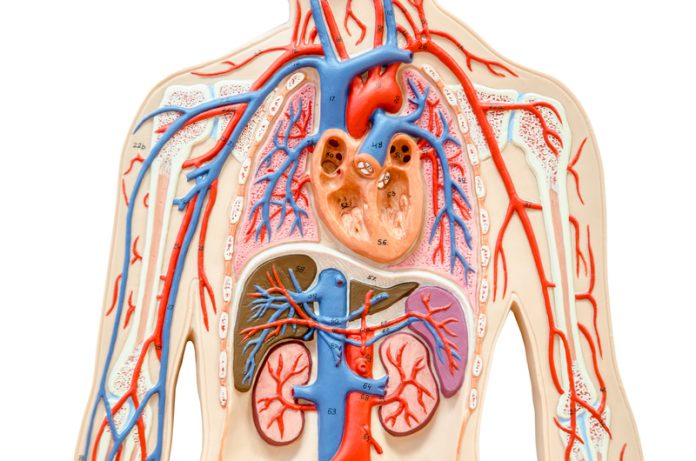The National Kidney Foundation analyses the causes of membranous nephropathy and the science available to identify and treat it
Many diseases can affect your kidney function by attacking and damaging the glomeruli, the tiny filtering units inside your kidney where blood is cleaned. Glomerular diseases include many conditions with many different genetic and environmental causes. Membranous nephropathy (MN) is a type of glomerular disease and is an autoimmune disease. An autoimmune disease is caused when your body’s defence system turns against you and harms your body when it should be protecting you.
Your defence system is known as your immune system, which is “turned on” by glomerular disease. MN is one of the most common causes of nephrotic syndrome. When your immune system attacks the glomeruli in membranous nephropathy, it causes changes to the filters that lead you to lose a large amount of protein into the urine. If this continues at high levels, it can eventually lead to kidney failure.
What causes membranous nephropathy?
There are two kinds of MN: idiopathic (or primary) MN and is more common than secondary MN, which is caused by another disease or drug. Although there has been progress in learning about the autoimmune cause of primary MN, a lot more research is needed to find the reason the immune system is triggered. The most common causes of secondary MN are:
Hepatitis B virus;
Non-steroidal anti-inflammatory drugs (NSAIDs);
Systemic lupus erythematosus (lupus for short);
Cancer and;
Other diseases and infections.
What are the signs and symptoms of membranous nephropathy? Membranous nephropathy happens slowly over time, so you may not notice anything is wrong. You may only see some signs on your own, while others may be found by your healthcare provider.
Signs and symptoms of membranous nephropathy include:
- Swelling in body parts like your legs, ankles and around your eyes (called edema);
- Weight gain;
- Fatigue;
- Foaming of the urine caused by high protein levels in the urine (called proteinuria);
- High fat levels in the blood (high cholesterol) and;
- Low levels of protein in the blood.
Which tests are done to find out if I have MN?
- Urine test: A urine test will help find protein and blood in your urine;
- Blood test: A blood test will help find levels of protein, cholesterol, and wastes in your blood; Glomerular filtration rate (GFR): A blood test will be done to know how well your kidneys are filtering the wastes from your body;
- Kidney biopsy: In this test, a tiny piece of your kidney is removed with a special needle, and looked at under a microscope. The kidney biopsy may show if you have a certain type of a protein that helps your body fight infection, called an antibody. Your body usually makes this antibody when you have MN.
What are the treatments for MN?
After your healthcare provider finds that you have MN, your doctor will follow up with you very closely without treatment. This waiting period allows time to see if you go into remission (the disease stops being active and causes no symptoms) without having to use strong drugs. During this waiting time, you will be given supportive care (treatments that have little or no risk). Supportive care includes:
- ACE inhibitor or an ARB: These drugs help to reduce high blood pressure and proteinuria;
- Diuretics: Pills that cause you to urinate more and;
- Low-salt diet: Lowering salt may help to reduce edema (swelling in your body parts like your legs, and around your eyes).
If your symptoms do not go away after supportive care, you may be given treatments that affect your immune system. The goal of your treatment is to manage your symptoms. If you have nephrotic syndrome, your healthcare provider may give you pills to reduce the water in your body (diuretics).
It is very important to discuss the side effects of your treatments with your healthcare provider. If you are a woman and are considering having children, be sure to speak with your doctor about how your treatments may affect this process.
What are the treatments for MN in children?
It is very rare for a child to have MN, so it is important to check for anything that might be causing the disease, especially lupus. If your child needs treatment for MN, the treatment is usually the same as it is for adults. It is important to know that some people with MN go into spontaneous remission, which means it suddenly goes away without any treatments.
Will I have kidney failure because of MN?
You should talk with your doctor about your condition because the progression of the disease depends on many factors. Treatment can slow the process of kidney disease. Everyone is different in how they respond to treatment.
Over time, some patients with MN gradually get worse until they reach kidney failure. If this occurs, they will need a kidney transplant or dialysis to stay alive. Some people respond well to treatment and may live with the disease for many years while being monitored for any signs of change.
National Kidney Foundation (NKF)
Tel: +1 212 889 2210
www.twitter.com/nkf











